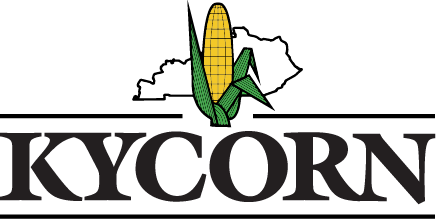This article was posted in the September 5, 2023 issue of POLITICO’s Weekly Agriculture Newsletter.
CORN GROWERS Q&A: Morning Agriculture (MA) caught up with Brooke S. Appleton, vice president of public policy at the National Corn Growers Association, via email to break down the group’s big farm bill priorities.
The answers have been edited for clarity.
MA: What are NCGA’s top priorities for the farm bill?
Brooke S. Appleton: As grower leaders for NCGA testified this spring, crop insurance is our number one priority in the farm bill. Federal crop insurance has a proven track record of helping producers quickly respond to natural disasters.
As one corn grower recently said in an interview, risk management is all about “crop insurance, crop insurance, crop insurance.”
NCGA supports increasing the affordability of crop insurance for producers, and we are working with coalition partners to defeat efforts to restrict producer access to crop insurance products or make harmful program cuts.
Corn growers are also committed to strengthening the producer safety net. And we are seeking improvements to strengthen the Agriculture Risk Coverage and Price Loss Coverage commodity programs. These two programs support farmers only when they face significant drops in commodity prices or revenues.
USDA trade promotion programs are also top of mind. We are asking Congress to increase funding in the farm bill for the Market Access … and the Foreign Market Development programs. These programs promote U.S. agricultural products overseas and connect potential foreign customers to American farmers and their products, returning an average of $24 per dollar spent.
And finally, we are highly supportive of USDA’s voluntary conservation programming, which plays an important role in helping advance the adoption of climate-smart agricultural practices.
MA: NCGA recently made a proposal to do a mandatory base acre update in the farm bill. Why do corn growers want that, and what is the consensus on the Hill on the chances for that?
BA: Corn growers believe that the base acres used for commodity programs should better reflect today’s risks and recent crop planting rotations. At NCGA’s Corn Congress in July, grower delegates voted to support a nationwide mandatory base acre update. A one-time reset of base acres would help producers across the country who either have limited or no access to the commodity programs due to a lack of base acres for their farms. Young and beginning farmers particularly need new base acres and access to these farm programs.
Compared to the current system, an update to base acres would provide more equity for producers, reform the underpinning of the commodity programs and may ultimately provide savings which could be used to further strengthen the safety net programs. Inaction will only make the gaps between base acres and recent plantings wider.
MA: The farm bill is barreling toward an extension. How does that impact corn growers? What would happen if Congress doesn’t pass an extension?
BA: While Congress has very few legislative days left before September 30, corn growers continue to focus on a full reauthorization of the farm bill.
The farm bill plays a critical role in helping growers navigate risks outside of their control and the certainty provided by USDA programs is important for farmers, who are already making decisions for the 2024 crop year based on markets, growing conditions and risk calculations. NCGA supports a bipartisan, comprehensive agriculture and nutrition reauthorization as soon as possible.
MA: Increasing reference prices are a big ask for most major commodity groups. What is the status of that push? Are corn growers concerned there won’t be enough money to increase reference prices? How much money would there need to be to create a significant boost?
BA: Corn growers value having the Price Loss Coverage program, particularly during periods of deep and sustained low commodity prices. The current statutory reference price for corn is well below current market prices and long-term historical average prices. However, a major challenge for commodity organizations in evaluating and advocating for potential changes to farm programs is the bearish projections by the Congressional Budget Office for long-term commodity prices, particularly compared to projections from USDA and land-grant institutions.
With the potentially high costs of raising statutory reference prices, we have focused on a more cost-effective way to improve the PLC program. The effective reference price escalator mechanism was added in the 2018 farm bill and allows the program to have more responsive levels of protection that can rise in response to actual market prices to enhance risk protection for producers. Additional improvements to the effective reference price will provide meaningful support to corn growers throughout the life of the 2023 farm bill even if commodity prices continue to be volatile or decline.
MA: Corn growers have been out front on trade issues lately. How can the farm bill address trade concerns?
BA: Yes, NCGA and state corn growers have been sounding the alarm for the last year about Mexico’s troubling position on biotech corn imports. The situation underscores the importance of holding trading partners responsible for the agreements they sign, in this case the U.S-Mexico-Canada Agreement. On the upside, the highly effective approach Ambassador Katherine Tai, USDA Secretary Tom Vilsack and Chief Agricultural Negotiator Doug McKalip have taken on this issue serves as a model of how we can enforce these agreements.
In terms of the farm bill, Washington needs to increase its investments in programs that help grow foreign markets for American farmers. … [W]e are poised to export our goods to new regions of the world that need our products. But we need mechanisms in place that will help facilitate those relationships.

